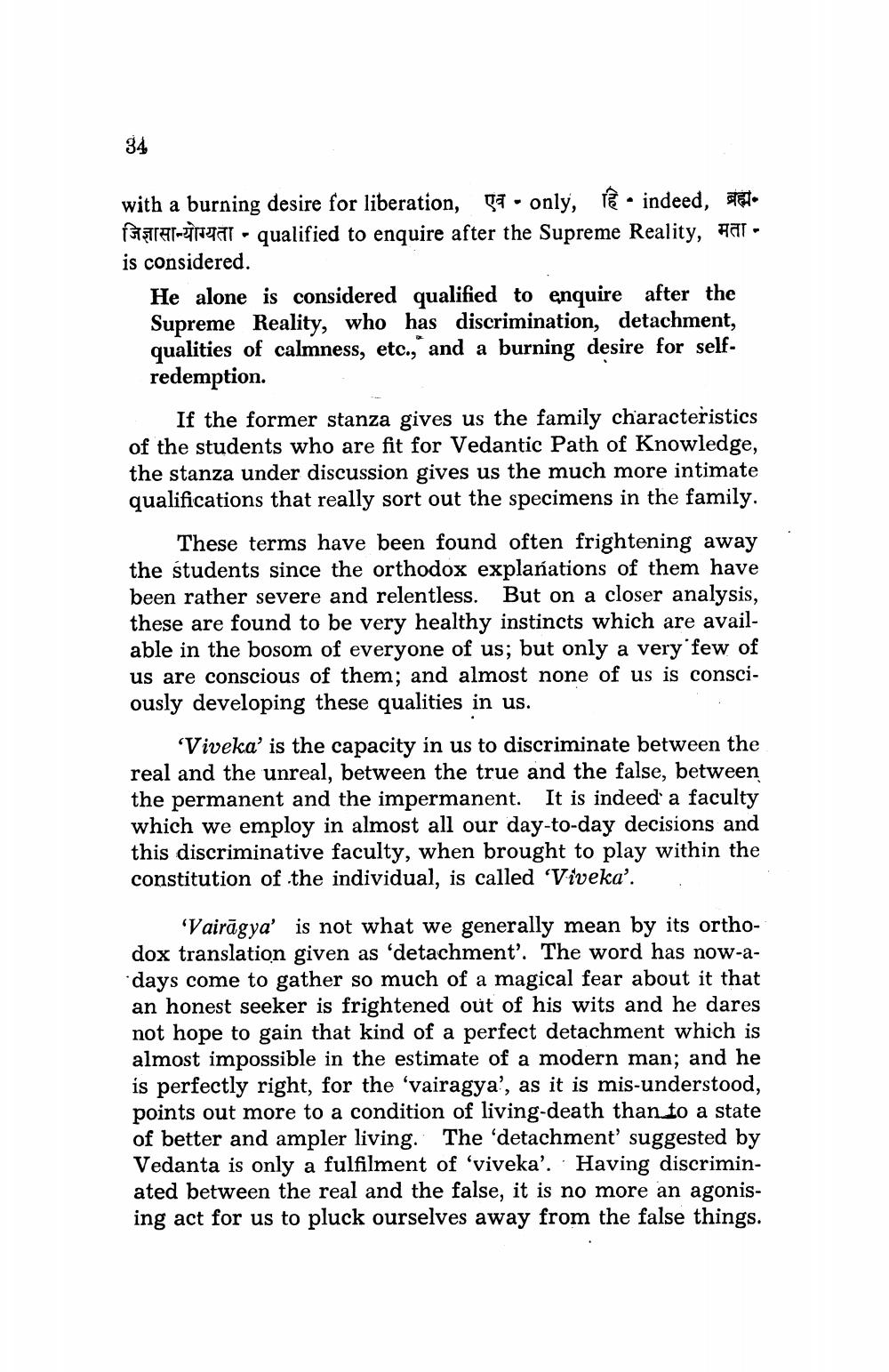________________
34
with a burning desire for liberation, 57 only, he - indeed, steht IFTAL-Car - qualified to enquire after the Supreme Reality, Aaris considered.
He alone is considered qualified to enquire after the Supreme Reality, who has discrimination, detachment, qualities of calmness, etc., and a burning desire for selfredemption.
If the former stanza gives us the family characteristics of the students who are fit for Vedantic Path of Knowledge, the stanza under discussion gives us the much more intimate qualifications that really sort out the specimens in the family.
These terms have been found often frightening away the students since the orthodox explanations of them have been rather severe and relentless. But on a closer analysis, these are found to be very healthy instincts which are available in the bosom of everyone of us; but only a very few of us are conscious of them; and almost none of us is consciously developing these qualities in us
"Viveka' is the capacity in us to discriminate between the real and the unreal, between the true and the false, between the permanent and the impermanent. It is indeed a faculty which we employ in almost all our day-to-day decisions and this discriminative faculty, when brought to play within the constitution of the individual, is called 'Viveka'.
'Vairāgya' is not what we generally mean by its orthodox translation given as 'detachment'. The word has now-adays come to gather so much of a magical fear about it that an honest seeker is frightened out of his wits and he dares not hope to gain that kind of a perfect detachment which is almost impossible in the estimate of a modern man; and he is perfectly right, for the 'vairagya', as it is mis-understood, points out more to a condition of living-death than to a state of better and ampler living. The 'detachment' suggested by Vedanta is only a fulfilment of 'viveka'. Having discriminated between the real and the false, it is no more an agonising act for us to pluck ourselves away from the false things.




